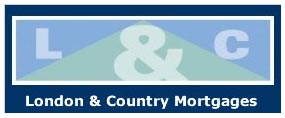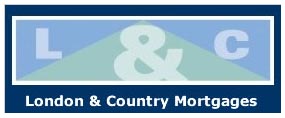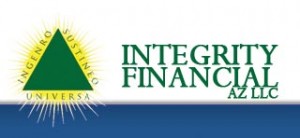The stock market implosion of 2008 has millions of Americans feeling financially helpless. Yet individuals who are investing their 401k & IRA money in ventures outside the stock market are singing a different tune.
 One such cheerful investor is Janice Stoddard, who along with her husband, Jack, owns a real estate business in Arkansas. In 2004, Janice learned about “self-directed investing” from a seminar that taught how to invest IRA money into real estate. She returned home excited about the prospect of setting up her own self directed IRA.
One such cheerful investor is Janice Stoddard, who along with her husband, Jack, owns a real estate business in Arkansas. In 2004, Janice learned about “self-directed investing” from a seminar that taught how to invest IRA money into real estate. She returned home excited about the prospect of setting up her own self directed IRA.
The Stoddards established two IRAs, rolling over investments from their traditional IRAs to fund them. They used the IRAs to make small real estate transactions, purchasing and reselling property at a profit with all proceeds staying in the IRA.
In 2006, an opportunity to buy and then immediately re-sell 60 acres of undeveloped land at a profit came up. Concerns over structuring the deal and keeping everything above board led her and her husband to consult with Jeff Nabers, well known as one of the nation’s top experts on self directed investing.
“Jeff helped us establish a Solo 401k that could be used to handle the 60 acre transaction. The Solo 401k was a key component to our funding because we were able to contribute 10 times more to it than we could to an IRA. Meanwhile, our son, who works in oil and gas, alerted us to keeping our eyes open for property with mineral rights for future transactions,” Janice says.
With the proceeds from the 60 acre sale, the Stoddards began looking for their next investment. They found a 57 acre property with 54 acres of undeveloped land and a house that was sitting on three acres. The property, valued at $435,000, was more than the couple had in cash in their Solo 401k, so they began looking at options.
They contacted friends in Dallas and asked if they’d be interested in joining them in the investment. Their goal was to buy it and sub-divide it for resale in five and ten acre parcels. Their friends, both physicians, agreed.
Nabers Group helped the couples form a Limited Liability Company for purposes of purchasing the land. The LLC is owned jointly by the Stoddard’s Solo 401k and their friend’s IRA.
The owner had originally listed the property for $5,250 an acre with only 50% of the mineral rights. At the time no drilling was taking place on the property and no natural gas had been pulled from the ground. The Stoddards negotiated for full mineral rights and bought them with the property for $5,875 per acre.
Over the next few months, natural gas producer Chesapeake Energy put a well on the property, and soon the LLC was receiving large monthly royalty checks for the natural gas on the property. Over 18 months, those checks totaled more than $100,000. When the Stoddards were approached by a buyer who wanted to purchase the mineral rights and not the land for $8700 an acre, they sold the rights, netting another $465,000 while retaining the land, now valued at an estimated $435,000.
“Janice knows real estate and knew how to identify an under-valued property that was a good investment. With her son’s knowledge of oil and gas, her strategy became as much about the mineral rights as the real estate. Mineral rights prices had been skyrocketing and lease values had been increasing in her area, and Janice knew she could resell the land and improvements alone and at least break even while keeping what she was really after – the mineral rights,” Nabers said.
Within six real estate transactions, the LLC’s asset value had gone from $350,000 to more than $950,000 in under two years. The Stoddards have more than quadrupled their initial investment, and they aren’t stopping there. Other property and mineral rights deals are already on the table for purchase with their Solo 401k funds.
Nabers, whose firm regularly structures self directed IRA & Solo 401k investment plans, says the growth in the Stoddards’ investments is exceptional, but not unique for someone who is as diligent in their investing as they are.
“I will admit to being a researcher,” Janice Stoddard says. “When I found out that as a self-employed individual I could set up a retirement plan that would allow me to invest in real estate, which is something I know very well, I was excited about that. The hard part was finding a financial expert who would embrace the concept of self directed investing. Everyone I talked to told me I should buy stocks instead. The Nabers Group has a wealth of experience in this area and Jeff has been very instrumental in giving us a thorough understanding of our options and the opportunities,” she says.
Today Stoddard advises other real estate professionals to do the same thing, and she’s joined the IRA Association of America to ensure that she is aware of regulations and new opportunities available to individual investors.
“I talk to my friends, and they are absolutely despondent over what is happening to money they thought they had for retirement or college. A lot of people have lost a lot of money in recent months. When I tell them I didn’t lose a dime and that I’ve quadrupled the value of my Solo 401k over the last eighteen months, they want to know how,” Stoddard says.
According to Nabers, “My business is growing because there are plenty of people who are not willing to ‘wait and see what happens’ with the stock market. They want control over their finances, and they want to replace their restrictive IRA or 401k with one that offers unlimited possibilities.”
Stoddard says she never hesitates to tell people to take charge of their own retirement money.
“If we had not established our self directed investment accounts we would not have the cash available for investing that we now have. That’s what allows us the ability to act fast with real estate and mineral rights opportunities. It’s a lot different than helplessly watching the market, and it has absolutely changed our future,” she says.
For more information on self-directed investing, visit the IRA Association of America or Jeff Nabers’ blog.
About The Company:
Jeff Nabers is an expert on self directed investing, Solo 401ks, the future of social security, alternative IRA investment options, and other topics that are of interest to individuals at all income levels. His firm, Nabers Group, is located in Denver, Colorado. Mr. Nabers can be reached at 866-253-7746. You may also contact his publicist, Connie Holubar, at 903 880 8217 to arrange for an interview or to request photos or other background materials.
Via EPR Network
More Financial press releases
 But home insurer LV= is warning that these reluctant landlords are putting themselves and their tenants at risk, with the findings showing that just 27% have signed up to a compulsory tenancy deposit scheme (TDS) designed to protect tenants and landlords from disputes over the lease. This is despite it being a legal requirement for landlords to ensure deposits are protected by the Government approved scheme.
But home insurer LV= is warning that these reluctant landlords are putting themselves and their tenants at risk, with the findings showing that just 27% have signed up to a compulsory tenancy deposit scheme (TDS) designed to protect tenants and landlords from disputes over the lease. This is despite it being a legal requirement for landlords to ensure deposits are protected by the Government approved scheme.











 The Credit Confidence Survey by PricewaterhouseCoopers suggested that over one in four people (27%) are worried about their future ability to repay debts, while 20% of UK credit customers are worried about the future availability of credit – suggesting a reliance on credit to pay off existing debts.
The Credit Confidence Survey by PricewaterhouseCoopers suggested that over one in four people (27%) are worried about their future ability to repay debts, while 20% of UK credit customers are worried about the future availability of credit – suggesting a reliance on credit to pay off existing debts.










 New analysis, states the Liberal Democrats’ website, reveals that personal debt has risen by a total of one trillion pounds in the past eleven years – a startling ten million pounds for every hour the Labour government has been in power. Repayments to that collective personal debt stand at almost £95 billion per year, or £3,000 per second.
New analysis, states the Liberal Democrats’ website, reveals that personal debt has risen by a total of one trillion pounds in the past eleven years – a startling ten million pounds for every hour the Labour government has been in power. Repayments to that collective personal debt stand at almost £95 billion per year, or £3,000 per second.